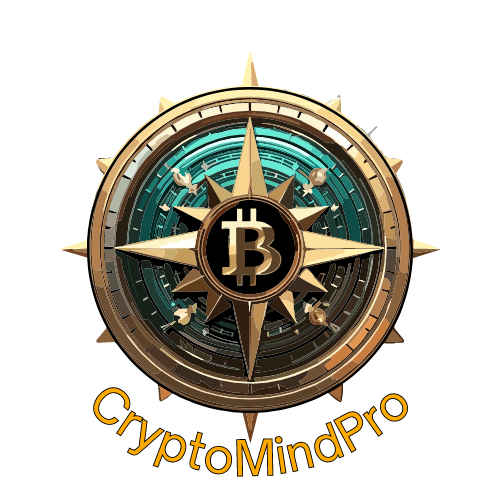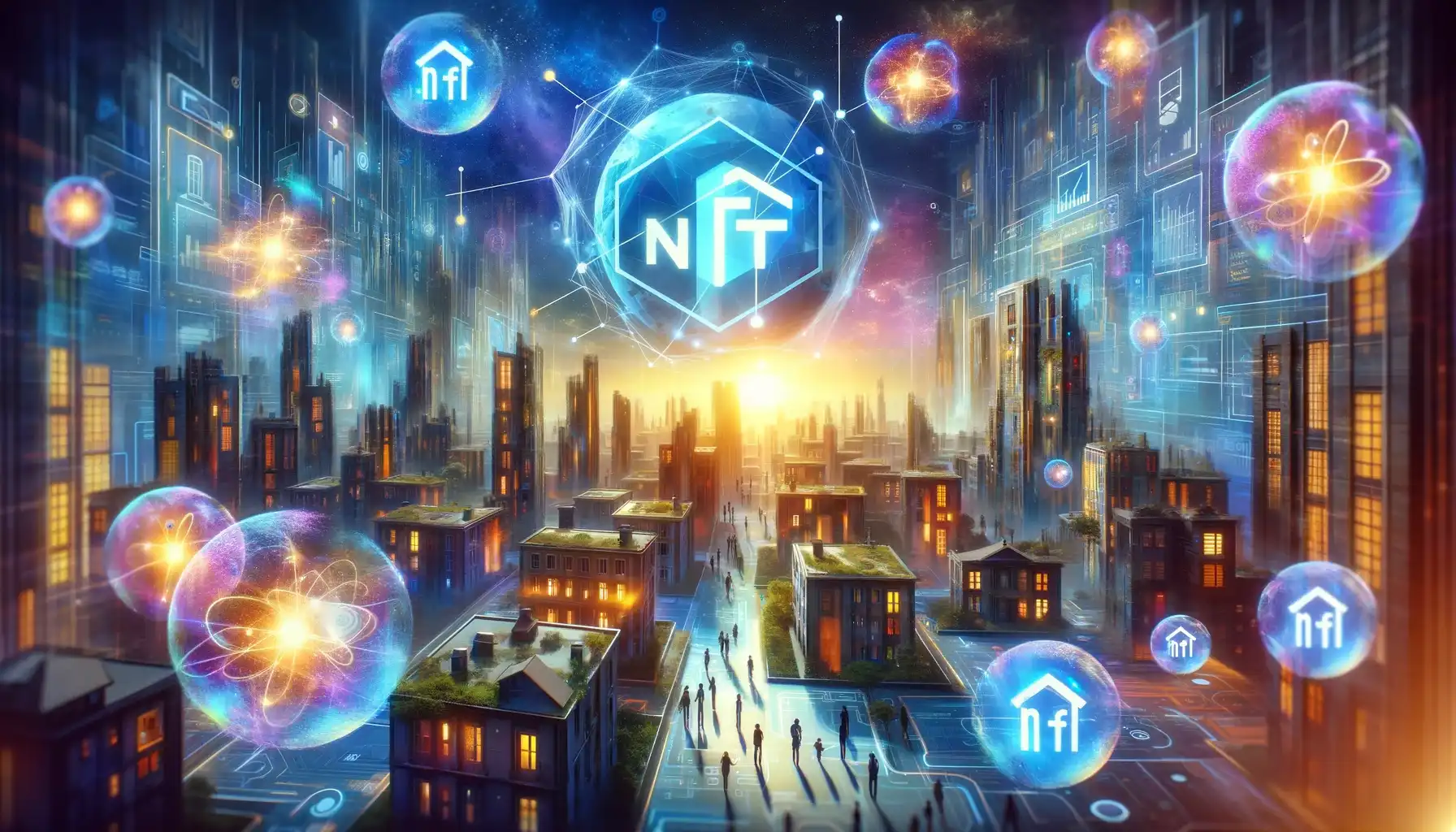As we navigate the ever-expanding realm of the metaverse, the concept of property ownership has been reimagined through the innovative lens of decentralized finance and blockchain-based investments. For savvy investors and digital pioneers, the allure of the metaverse provides a fertile ground for real estate investment strategies that are contemporary, dynamic, and brimming with potential. At the core of this digital revolution are non-fungible tokens (NFTs) and fractional ownership, twin pillars that uphold the new paradigm of acquiring and managing virtual property investments.
The integration of NFTs has given rise to unprecedented investment opportunities in the metaverse, where coveted digital assets can be owned, traded, and capitalized upon. The genius of fractional ownership further democratizes the landscape, allowing individuals to collectively own slices of virtual real estate. This synergistic approach to investing has opened the door for a wider audience to explore the burgeoning metaverse with financial stakes that were once deemed unattainable. With fractionalized shares, co-owners can now invest together, manage properties jointly, and enjoy shared gains, mirroring the collaborative spirit of a global community.
Whether you’re an experienced investor versed in the nuances of digital economies or a curious newcomer eager to dip your toes into the waters of the metaverse, the time has never been riper to embrace the possibilities. Dive deep into the world of digital assets, where innovation meets investment, and discover how you can own a part of the future today through smart, scalable, and groundbreaking metaverse real estate investment strategies.
Key Takeaways
- NFTs and fractional ownership are reshaping the approach to metaverse real estate investments.
- Fractional ownership makes high-value virtual investments accessible to a broader audience.
- Blockchain technology facilitates secure, transparent record-keeping of digital assets.
- Co-ownership in the metaverse mirrors the collaborative spirit of decentralized finance.
- Investment opportunities in the metaverse are expanding, allowing investors to create diverse digital portfolios.
The Emergence of Fractional NFTs in Virtual Property Investment
The digital landscape is undergoing a profound transformation with the introduction of fractionalized NFTs, reshaping the way we approach virtual property investments. At the intersection of innovation and inclusivity, this development is dismantling financial barriers, making tokenized real estate accessible to a diverse range of investors. The concept of fractional ownership has opened the floodgates for increased market participation, setting the stage for vibrant secondary market activities and enhanced liquidity, particularly in the metaverse’s prime virtual locations.
Aspiring virtual real estate moguls now have the means to become part-owners of sought-after digital parcels without the need to commit substantial capital. This shift towards fractionalized property ownership draws parallels with real-world REITs, fostering a collaborative approach to property management and benefit sharing among stakeholders. Moreover, the allure of digital collectibles has expanded beyond mere ownership to an interactive model where artists and content creators engage directly with their audiences through stakes in fractional NFTs. This symbiotic relationship has the power to align interests and the potential to generate and share successes and revenues in newfound ways.
Exploring the utility of fractional NFTs reveals their transformative impact not just on virtual real estate, but also on the broader realm of digital assets, including collectibles and entertainment. The metaverse’s investment landscape is becoming a canvas for diverse and dynamic opportunities, propelled by the widespread adoption of fractional NFTs. With an eye on future developments, we can anticipate further expansion in ways that can reimagine our digital interactions, commerce, and ownership.
- Fractional NFTs are revolutionizing virtual property investments by making them more attainable.
- Fractional ownership mirrors the collaborative spirit of traditional real estate investment trusts.
- Artists and content creators leverage digital collectibles to engage and reward their audience.
- The utility of fractionalized property ownership within the metaverse is witnessing continuous growth.
Indeed, the phenomenon of fractional NFTs signifies more than just a trend; it’s proving to be an essential keystone in the arch of digital asset progression. As the metaverse evolves, so too does the economic model it embraces, laying the foundation for an inclusive and thriving virtual economy.
Metaverse Real Estate Investment Strategies with NFTs and Fractional Ownership
The convergence of virtual reality and blockchain technology has paved the way for ingenious investment opportunities in the metaverse. Specifically, the adoption of fractional ownership and NFT blue chips has reinvented the way we think about real estate investment in these burgeoning digital worlds. As both sectors of decentralized finance and crypto investments continue to mature, the potential for profitable ventures in virtual landscapes becomes more tangible.

Prospective investors who once found the cost of entering the metaverse prohibitive are now empowered to stake their claim in virtual developments. Through fractional ownership, shared digital real estate ventures become accessible, opening up a new investment class that cleverly blends the worlds of finance, gaming, and digital art.
Navigating the Metaverse Marketplace: Tips for Beginners
For those starting out, grasping the fundamentals of virtual property investments is key. Novices should seek out metaverse platforms facilitating investments in tokenized real estate, allowing for participation with minimal starting capital. It’s advisable to research vigorously, pinpointing virtual reality locations poised for expansion and profit. Diversification, a mainstay principle in any investment approach, holds equally true for constructing a resilient digital asset portfolio. Start modestly, with a view to grow your stake in the metaverse ecosystem incrementally.
Innovative Investment Models: From Tokenized Assets to REIT-Like Structures
Blockchain-based investments have introduced structures resembling digital Real Estate Investment Trusts (REITs), where collective property ownership in virtual worlds mirrors the shared equity models of the physical world. These models invite multiple investors to co-own potentially lucrative parcels of the digital universe, mitigating individual financial exposure while reaping the collaborative benefits of shared digital ownership.
Risks and Rewards: Understanding Volatility in the Metaverse World
Investing in the metaverse is not without investment risks and market volatility. The virtual landscape is still in its nascent stages, and prices can fluctuate on the strength of market sentiment and technological advancements. Investors must balance the lure of significant gains against the potential for sudden market corrections. An astute investor will acknowledge these risks, implementing strategies to safeguard against uncertainty while positioning for successful virtual property investments.
Case Studies: Successful Metaverse Real Estate Ventures
Examining case studies of triumphant metaverse investments can offer invaluable insights. High-valued crypto investments by global brands in premium virtual spaces attest to the confidence in the metaverse’s future. Profitable returns have been realized not only through the appreciation of virtual real estate but also via active revenue streams from the environments themselves, presenting compelling examples of successful virtual property investments.
In summary, the metaverse holds significant promise for the astute investor. Armed with a deep understanding of the landscape and guided by strategic investment principles, one can navigate this brave new world of digital real estate to potentially reap substantial rewards.
Decentralized Finance Impact on Fractional and NFT Real Estate Investments
The revolution in digital real estate transactions has been fueled by blockchain technology’s promise of decentralization and smart contracts’ automation capabilities. With the rise of fractional ownership leveraging these advancements, a new horizon of investment opportunities in virtual real estate is underway. Let’s delve into how these technologies are reshaping the investment landscape.

Blockchain Technology and Smart Contracts: Streamlining Transactions
The transformative power of blockchain technology lies in its ability to streamline digital real estate transactions with unparalleled transparency and security. Smart contracts, which operate on blockchains, have become indispensable in executing fractional and NFT real estate investments. These self-executing agreements encode the terms and conditions of a transaction, ensuring that all parties involved adhere to the stipulated rules without the need for intermediaries. By reducing complexity and establishing trust, smart contracts have fostered a more efficient and accessible market for digital ownership and community-led investment.
Enhancing Liquidity: How Fractional Ownership is Changing the Game
Fractional ownership benefits have dramatically increased liquidity in virtual real estate, altering the investment game. By enabling the subdivision of high-value NFTs into smaller, more manageable shares, fractional ownership invites a wider pool of investors to the table. This modality enhances market participation, trading volume, and secondary market activity, allowing for a dynamic market where digital assets are traded with greater ease and frequency. As a result, fractional ownership has not only demystified the realm of decentralized finance but has also broadened its appeal to mainstream investors.
The Role of DAOs in Governing Virtual Real Estate Investments
Evolving alongside fractional ownership and smart contracts, Decentralized Autonomous Organizations (DAOs) are recalibrating governance models in the sphere of virtual real estate investments. These community-led entities afford fractional owners a voice in the decision-making process, ensuring that the collective will governs facets like asset management and revenue distribution. DAOs epitomize the ethos of decentralized finance, facilitating a participatory governance structure that upholds fairness and engenders a sense of collective stewardship, thereby reinforcing the sustainability of digital real estate ventures and fortifying the community’s vested interests.
The Future of Digital Assets in Real Estate: Trends to Watch
As we set our gaze on the horizon of future trends in digital real estate, it’s clear that technology is architecting a transformative path for the sector. The increasing tokenization of real-world and virtual assets is a testament to a burgeoning blockchain economy that marries the tangibility of brick-and-mortar with the agility of digital markets. This evolution heralds a new era where traditional real estate models coalesce with the burgeoning metaverse development, unlocking a breadth of investment arenas that were once unfathomable.
One of the most significant shifts lies in the expansion of asset classes encompassed by fractional NFTs. Critical assets like premiere real estate, fine art, and rare collectibles, historically the domain of the affluent, are now entering the sphere of the average investor through fractionalization. This trend is not simply a fleeting wave but a robust current propelling asset tokenization into conventional investment portfolios. It stands as a beacon signaling the mainstreaming of NFTs and fractional ownership into everyday investment choices, a movement that’s reshaping perceptions and financial strategies alike.
Indeed, the future canvas of digital assets is vast, boasting a diversity of opportunities thanks to secondary markets energized by enhanced accessibility and affordability. Such markets advance the democratization of real estate investing, making it increasingly lucid that fractional NFTs are more than a ripple in the financial ecosystem—they are the undercurrents molding the future of the blockchain economy. The merging of our physical existence with digital identities in the metaverse suggests a revolutionary redefinition of the concept of asset ownership, investment, and growth in this fast-evolving digital epoch.
Frequently Asked Questions
| Question | Answer |
|---|---|
| What is a fractional NFT for property ownership? | A fractional NFT for property ownership allows multiple investors to own a part of a property in the Metaverse. This is done by dividing the property into smaller, more affordable shares represented as NFTs, making investment more accessible. |
| What is the role of NFTs in the Metaverse? | In the Metaverse, NFTs serve as unique digital assets signifying ownership or proof of authenticity. They can represent a wide range of virtual properties, from artwork to real estate, facilitating trade and ownership in the digital realm. |
| Can you buy fractional shares of NFTs? | Yes, you can buy fractional shares of NFTs. This concept allows multiple individuals to own a part of a single NFT, making it more affordable and accessible for investors who might not be able to afford the whole NFT. |
| What are NFTs in the Metaverse? | NFTs in the Metaverse are digital tokens that represent ownership or proof of authenticity of a virtual asset. They are used to buy, sell, and trade digital goods and properties securely within the Metaverse, using blockchain technology. |
| How do fractional NFTs impact the real estate market in the Metaverse? | Fractional NFTs have revolutionized the real estate market in the Metaverse by enabling shared ownership, thereby lowering the entry barrier for investors and increasing market liquidity. |
| What are the legal implications of owning fractional NFTs in the Metaverse? | The legal implications of owning fractional NFTs in the Metaverse are complex and still evolving. Issues around property rights, regulatory compliance, and intellectual property laws are central to the discussion. |
| How does the valuation of fractional NFTs work? | Valuation of fractional NFTs is influenced by market demand, the uniqueness of the digital asset, and the overall economic environment in the Metaverse. It can fluctuate based on these factors, similar to traditional assets. |
Further Reading
| Title | Link |
|---|---|
| Cryptocurrency Exchanges | Read More |
| Navigating NFT | Read More |
| How Does an NFT Make Money | Read More |
| Blockchain in Supply Chain Management | Read More |
| Blockchain Technology in Healthcare | Read More |
| How Much Does It Cost to Create an NFT | Read More |
| AI-Powered Portfolio Optimization for Crypto in a Recession | Read More |
| Blockchain Security | Read More |
| Fractional NFT Marketplace Development | Read More |




